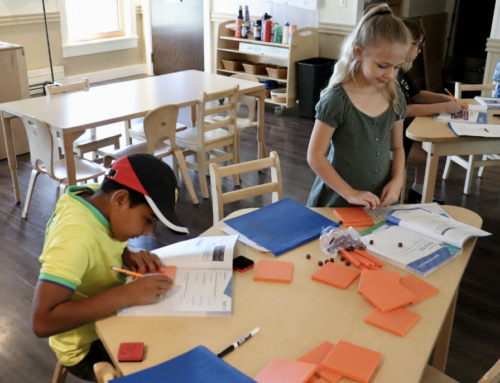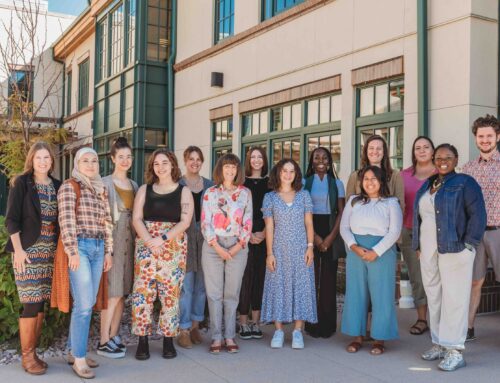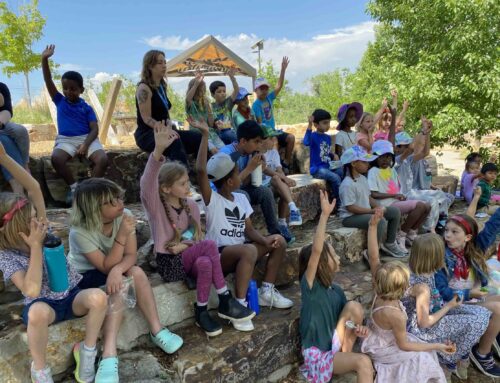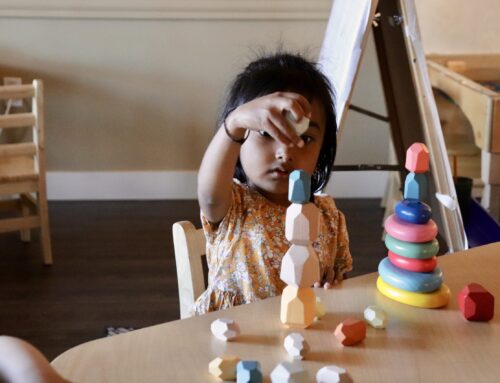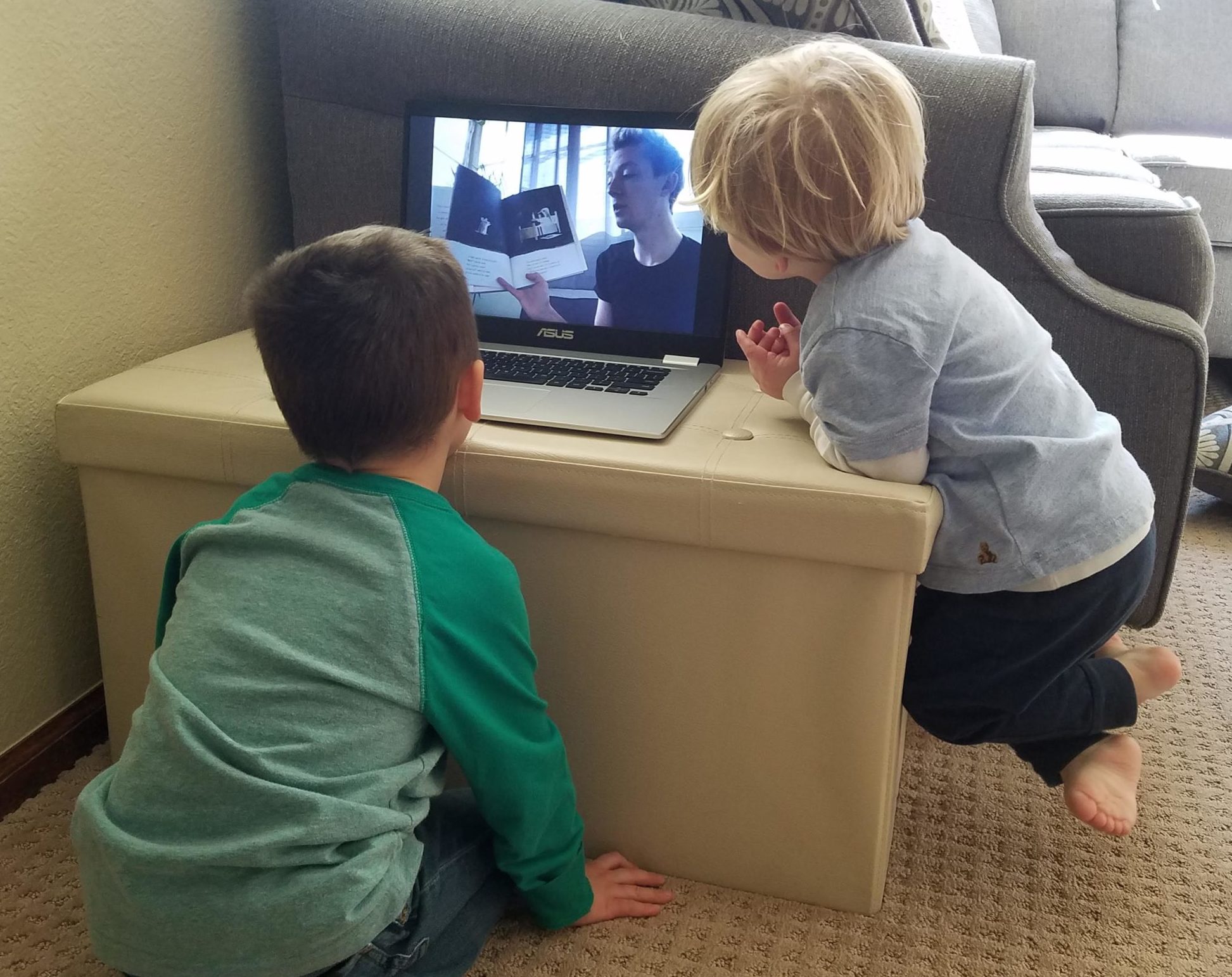
Several families have reached out to discuss filling in their days with meaningful inquiries for their children while balancing their own need to work from home. While our teachers have been working closely with families to provide sample schedules that might help to make this learning time make more sense, I wanted to underline developmentally appropriate expectations for young people.
Barton D. Schmitt, MD, writes that: “A normal attention span is 3 to 5 minutes per year of a child’s age. Therefore, a 2-year-old should be able to concentrate on a particular task for at least 6 minutes, and a child entering kindergarten should be able to concentrate for at least 15 minutes. (Note: A child’s attention span while watching TV is not an accurate measure of his or her attention span.)”
It’s important to notice that this average attention span is in relationship with a single, particular task. Open-ended activities allow for divergences and contingent possibilities and so you could think of them as a self-directed series of tasks. Self-directed and open-ended tasks are at the heart of the learning we are passionate about at Compositive and are working to inspire in your home — so ultimately we hope that your child will get lost and end up spending much more than 10 minutes on a provocation. We also hope that you can help your child to understand learning as iterative — most of the provocations our teachers are sharing can be done multiple times, resulting in multiple outcomes and new learning opportunities.
Additional benchmarks can be found from other experts across the US. Folks may have noticed screenshots of this document of Remote Learning Expectations during COVID-19 produced by the Illinois State Board of Education. I’ve seen it across my social media for a couple of weeks now. This chart is another helpful way to think about sustained attention times.
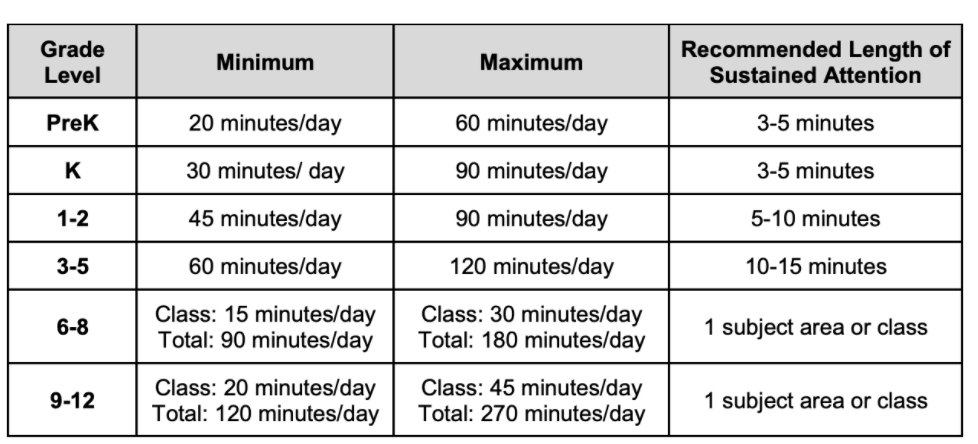
The Remote Learning Expectations outlined in this document quickly underline the ultimate goal of “learning, not on compliance.” I couldn’t agree more with this framing requirement. There is no expectation that what you are able to do with your child at home somehow replicates or even replaces school. The social and emotional learning happening in every moment with a variety of peers and adults cannot be replicated in the home and neither can the deep learning that comes from sustained relationships with master educators and a wide variety of engaging materials.
During this time, I encourage you to let school be school and let your inquiry at home be just that — life at home. Of course it’s an exploration, led by your child’s delight in provocations and reading and experiments and play. But it’s ultimately a profound shift for all of us to navigate each day. I hope you are able to find joy and grace for yourself and your child in this moment. It’s not forever, it’s just huge right now. It’s one iteration of a new way to experience the joy of childhood and the wild imagination needed for learning at any age.
It’s also important to remember that, for right now, many adults are needing to work from home while also juggling young children’s needs throughout the day. This, too, is part of an iterative process. Each day will look different, and each day will provide new insight into a rhythm that works (or doesn’t). A friend of mine has two 4-year old twins and is working from home full-time while his wife is working in healthcare. He has created a daily schedule with a few non-negotiables set on certain times (breakfast, his own work phone calls, etc) and open slots where his children can add their own activities to the schedule (some daily requirements include outdoor time, artmaking, reading, and making a meal together). Together, they map out the schedule together each morning (build those executive function muscles!) and then check off elements as the day progresses. Each day is a new adventure, but at least everyone understands the components of that adventure.
I hope that you can discover your work and play with your child as iterative and open-ended. Our teaching team is working every day to support you and your child as they progress through developmentally appropriate challenges and into exciting explorations. There is not a single, right way to do it, but there are many ways that are meaningful and rich for you and your family today and tomorrow. No matter where this journey takes us, we are so excited to be on it with you, your child, and our whole community.

